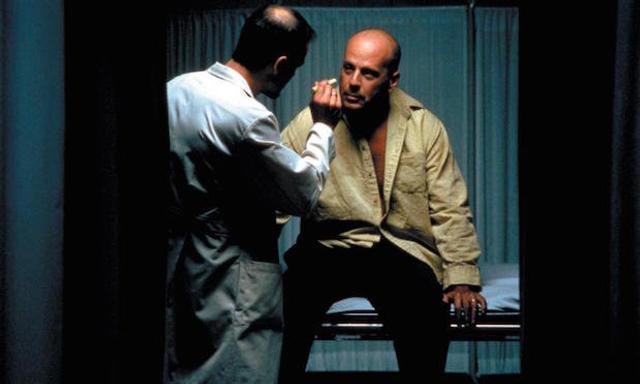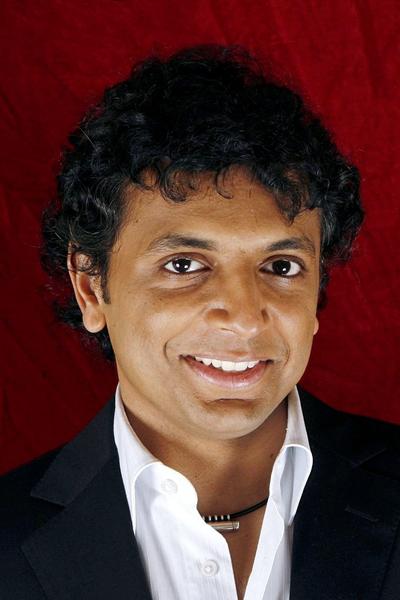'Glass', M. Night Shyamalan's latest movie and a sequel to both 'Split' and 'Unbreakable' hits cinemas this weekend.
Although a take on comic-book movies, Shyamalan's early work was defined by well-executed horrors with, yes, a few twists here and there, but his later work very clearly pulled away from him and made for some laughably bad films. Looking at you, 'The Happening'.
Here's our ranking of M. Night Shyamalan's films, excluding 'Glass'.
10. 'THE LAST AIRBENDER'
'The Last Airbender' was such a monumental failure on so many, many levels that it's almost baffling to think anyone looked at it and thought it was releasable. Never mind the clunky dialogue, the flat and unoriginal story or the fact that the film was horribly miscast, 'The Last Airbender' failed on a basic level of being entertaining. Reams and reams of exposition were crammed into the film and, to top it all off, it was 2010 so 3D was as much about flying CGI into the screen as anything else. Horrific.
9. 'THE HAPPENING'
A film so bad that - not joking - people were laughing during its initial screenings. While it's true, Shyamalan has made horror films that have flashes of humour and satire in them, 'The Happening' was taking it to an entirely different level. What made a lot of the film so frustrating was that there was the kernel of an interesting idea there - nature taking its revenge on humanity and fighting back - but the execution was so poorly carried out that it became unintentionally funny. Mark Wahlberg as a science teacher? Honestly.
8. 'AFTER EARTH'
What's clear from most of Shyamalan's work is that when he works with a smaller budget and a more tightly fitted idea, he can work wonders. 'After Earth' was an overblown blockbuster with the biggest star in the world at the time - Will Smith - and his son. Essentially, it was a vanity project that Shyamalan got caught up in and suffered for, as a result. There were some elements that had an interesting flourish to them, but overall, 'After Earth' was 'Battlefield: Earth' levels of bad.
7. 'LADY IN THE WATER'
Chronologically, 'Lady In The Water' is when M. Night Shyamalan went flying off the rails and into the ditch. Coming off the so-so response of 'The Village', 'Lady In The Water' was meant to be a return to form for Shyamalan. What followed was a descent into self-indulgence the likes of which has never been seen before. Shyamalan cast himself in a fairly substantial role in the film, as a writer whose work would change the world and must ultimately sacrifice himself for it if he is to succeed. Worse still was a film critic character, played by the excellent Bob Balaban, who gets savagely murdered on screen. To top it all off, you had an incredibly daft idea about a water nymph who sounds American and M. Night Shyamalan consistently patting himself on the back. Awful.
6. 'THE VISIT'
'The Visit' saw M. Night Shyamalan take on found footage, a recent but overused trope in horror, with some aplomb. However, 'The Visit' failed on a number of points - for one, the eventual twist was so blatantly obvious that it's almost infuriating when it comes along. While the performances from the child actors was pretty decent and the two grandparents made a decent go of it, what made 'The Visit' one of Shyamalan's weakest horror films was that it tried far too hard to shock instead of allowing a sense of atmosphere - something he was once very, very good at - to percolate.
5. 'SIGNS'
Where 'The Visit' had almost zero atmosphere, 'Signs' had it to spare. You also had one of Mel Gibson's most nuanced performances working with Joaquin Phoenix and a fascinating exploration of faith, science and family under stress. While the film might have relied on jump scares here and there, what really sold the film was the immersion of the experience created by the actors. Phoenix and Gibson bounced off one another incredibly well and you had Shyamalan cleverly allowing silence and music to fill the moments when it was needed.
4. 'SPLIT'
While much has been made of the fact that 'Split' was the first "stealth sequel" in the movie industry - all tied together by that final scene with Bruce Willis - there's plenty more to take in at the rest of the movie. James McAvoy as Kevin Wendell Crumb AKA The Horde splits himself across multiple performances and while it might be considered a bit showy compared to his other work, it's still massively effective. Shyamalan knows how to make atmosphere effectively and the flashes of humour help to anchor it all in a truly entertaining experience.
3. 'THE VILLAGE'
At the time, 'The Village' was derided for being another lazy, twist-driven foray into Shyamalan's abundant imagination. However, now that time has passed, it's worth reappraising 'The Village' for what it really is - an examination of the American consciousness itself. The twist - for those who don't know - is that the idyllic, Colonial American life everyone in the village has been leading is actually a walled-off park in modern times. One of the final scenes in the film sees William Hurt tearfully addressing the elders, reminding them why they chose this life - that perhaps it's better to life in a fantasy than face reality. When we look at how isolationist America is slowly becoming, 'The Village' seems takes on a different meaning. Maybe it was peaking underneath the skin of American life and exposing what was really there all along.
2. 'UNBREAKABLE'
There's been very films that have so skilfully examined an art-form as 'Unbreakable' examined comic-book mythology. Samuel L. Jackson's character nails it so perfectly when he describes the ideas portrayed therein as an exaggeration, and that follows into the film itself. There is no CGI-driven, city-destroying climax here, no capes or flowing costumes, no lasers or explosions. Instead, it's a surprisingly tender performance from Bruce Willis, trying to make sense of his gift and how he can help people. Samuel L. Jackson, likewise, gives one of his best performances as Elijah "Mr. Glass" Price, the art collector who is trying to make Willis see his destiny. It's beautifully shot, with a rousing score from James Newton Howard, and a unique perspective on what a comic-book film can look like.
1. 'THE SIXTH SENSE'
Although it's reduced to the twist ending, Shyamalan was smart enough to recognise that twist endings only work if you show the audience where and why they should have seen it coming. While it may not be subtle in retrospect, in 1999, nobody saw it coming. Haley Joel Osment's singular performance helped to sell the film, and you had Toni Collette and Bruce Willis giving some of their best work as well. More pointedly, however, was how effectively Shyamalan blended the almost neo-gothic horror elements with dramatic, emotional beats in the story. The scene in which Osment's character talks about the cyclist and his grandmother, even now, is devastating.

















































































